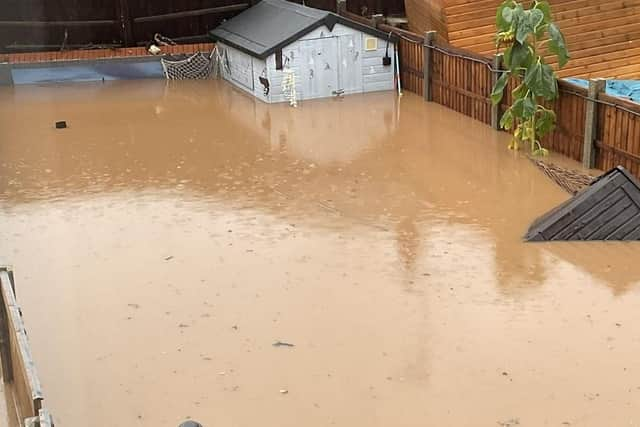Council warns flood-hit Nottinghamshire residents could be out of homes for months
and live on Freeview channel 276
The downpour caused extreme flooding across the county, with 80mm of rain recorded across three days in October.
The flooding is believed to have hit 65 different locations across the county.
Advertisement
Hide AdAdvertisement
Hide AdAnd with more rain forecast for Nottingham over the weekend as Storm Ciarán moves across the country, amber flood alerts, meaning flooding is possible, are in place along parts of the River Maun in Mansfield, Edwinstowe, Ollerton and Milton.


The council is still working to verify the extent of the damage caused by Storm Babet, with the number of affected properties rising daily.
According to latest figures, a total of 243 homes were flooded in Broxtowe, 229 in Newark & Sherwood District, and 204 in Bassetlaw where Retford was hard hit.
Areas of Hucknall were also badly hit, while several other parts of the county, including Mansfield and Ashfield, also suffered.
Advertisement
Hide AdAdvertisement
Hide AdMore than 2,500 sandbags were used to protect homes and stave off the water.
Several communities, including Church Laneham, were also evacuated to prevent them becoming cut off.
Coun Neil Clarke (Con), cabinet member for transport and environment, said: “Some people may be back in their homes, but for a considerable number, it will be some time before they are able to claim on insurance and be back in their homes.
"It could be many months.
“The flooding was unprecedented.
"The roads and defences in many places were simply unable to cope – it was as though there were 10 taps running into a kitchen sink rather than two.
Advertisement
Hide AdAdvertisement
Hide Ad“We will continue to try and anticipate where flooding will occur, and put alleviation measures in place.
“One area we are looking at is working with farmers to slow down the amount of water coming off the fields.”
Up to 20 investigations into localised flooding – known as Section 19 investigations – could be carried out.
Council and Government grants are in place for any households or businesses who are affected.
Around 150 council staff were deployed to help, working with partners in emergency services, the Environment Agency and district councils.